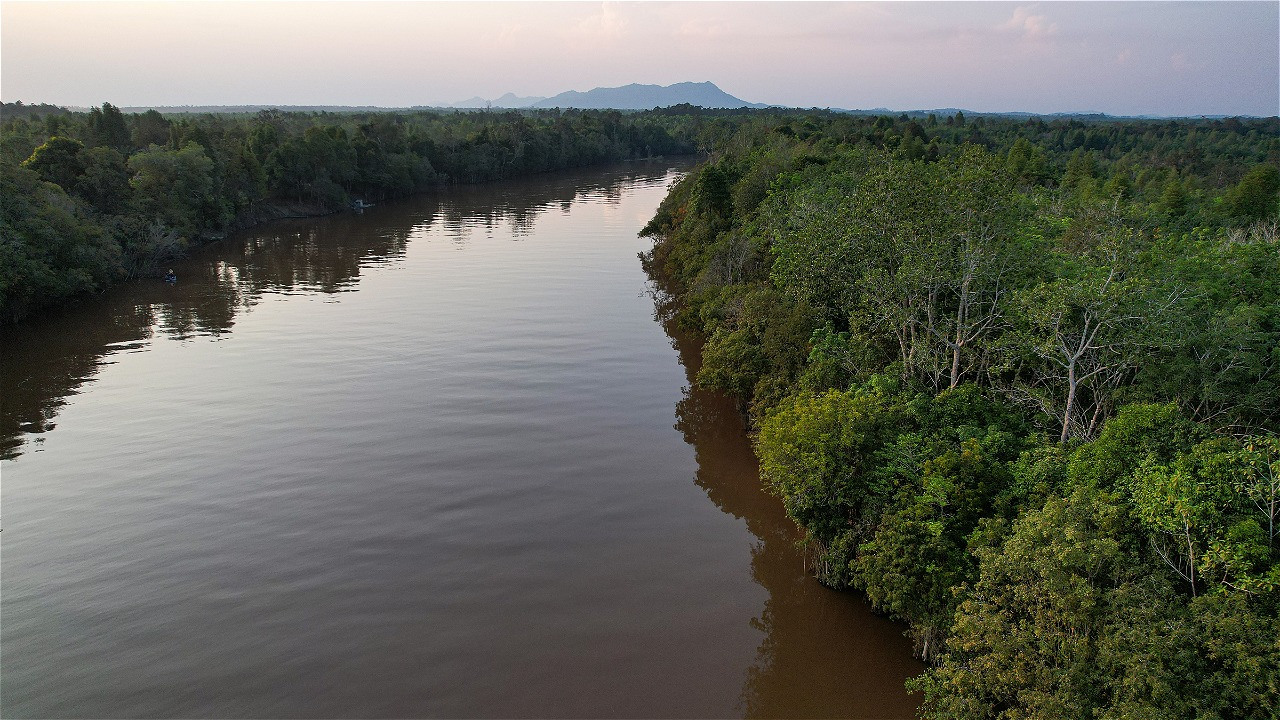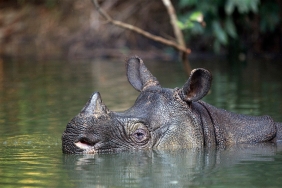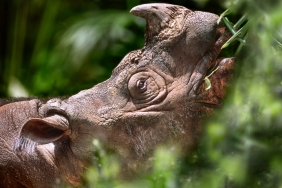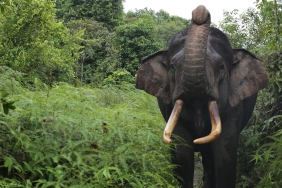NINIK MAMAK, THE KEEPERS OF HERITAGE AND TRADITION
By. Eka Utami Aprilia & Natalia Trita Agnika
Some decades ago, Jusman was just a boy from Batu Sanggan village, Riau, who was enjoying his childhood. He often took a bath in the crystal-clear Subayang River with his friends. “Until the parents come carrying rattan, we would not go home,” said Jusman with a smile as featured in WWF-Indonesia’s short movie “Sungai untuk Semua (River for All)”.
[Watch: River for All]
And then, that little smile turned grim. He realized that rivers in Rimbang Baling were getting polluted. “Since there were mining and palm oil plantations, the water has become dirty and damaged. It could not be uses to take baths,” said Jusman.
The river that streams across the different villages is the property of the local people. Every day, they catch fish to fulfill their needs from that river. In the area of Rimbang Baling, the river has also become a main transportation route for villagers to reach other villages to sell forest products. They use small boats called “piyau” as vehicles to access their daily necessities, such as food and to sell their natural products to neighboring villages.
Water supply from Rimbang Baling used for farmland and a wide range of economic activities of local population. Even some villages have been utilizing the water power for micro-hydro power plant to meet the needs of electricity.
Now, Jusman is an elderly figure in Batu Sanggan Village, and he can encourage people to keep the river clean as he remembers it to be in his childhood. “Keeping the river clean is embedded within our custom. All of the people here have an obligation to prevent the river from getting polluted,” he said.
Jusman is not the only elder in that region. One village is inhabited by several tribes, each is led by a “penghulu” or “datuk”. The elders are called “ninik mamak”. They occupy the top position within the village’s traditional hierarchy. “Ninik mamak” are guardians, keepers, and supervisors of the use of natural resources for the welfare of the local people.
The way that “ninik mamak” keep the river clean is clearly visible when they set the Lubuk Larangan rule. The ninik mamak allocated particular river areas and gave them boundaries so that people can only harvest the fish within those areas on a specific time. They also set punishment to offenders. Thus, the community cannot exploit river resources.
For “ninik mamak”, guarding the environment has become their instinct because the earth is their heritage. We can follow their tradition: utilizing natural resources sufficiently for today and save the rest for the next generation because they also have the rights to enjoy the sustainable forest and river.
The existences of Ninik Mamak are the proof that various local wisdom to keep water resources have persisted in the local community but are under continuing pressure from rampant land conversions into oil palm plantation and illegal mines. A campaign for the protection of water resources in the area through a community-based approach initiated by WWF and HSBC will invite and inspire many people to maintain the natural ecosystem of Rimbang Baling.
Rimbang Baling is very meaningful to life. So, we have to protect it from various threats of forest conversion. Conservation is not just for a few people who want to get a big advantage for a while. It must give huge benefits to the community. All of us who live on the earth, especially those who live in Sumatra requires a continuous water supply, clean air, and stable climate. Therefore, we can pass it on to the next generation in the future so that they can get a chance to enjoy the beautiful and green forest with the diverse fauna that live in it.





